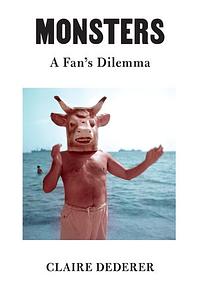You need to sign in or sign up before continuing.
Take a photo of a barcode or cover
challenging
dark
informative
reflective
sad
slow-paced
challenging
informative
reflective
medium-paced
This was a lot more of a philosophical and memoir oriented book than anything else. I did really enjoy that there was so much Seattle history, but I really wanted an actual investigation of this question… which was the premise of the book to start with. Overall, disappointed.
challenging
informative
reflective
challenging
inspiring
reflective
tense
fast-paced
challenging
informative
reflective
medium-paced
Stumbled upon this book in a small bookstore and was surprised but it by every turn. Both researched and memoir, an essay of criticism and a testament to love. And all along somehow compulsively readable, demanding to be read.
challenging
reflective
medium-paced
Dederer is a great essayist, someone who can get a question to take off and still make you satisfied despite never landing. This book feels like she’s trying to see the question, or ask it, as many times as possible from all angles while explaining cultural trends that we are all too familiar with.
Where the explorations feel to me like they derail is when she goes too far down the path of herself as a critic. When she weighs too heavily on the side of memoirist I lose where we fit, I lose the bigger question of how to deal with the dissonance now so common between art and the artist.
There is a large section dedicated to female monstrousness that explores motherhood, abandonment and the oft talked about “pram in the hallway”. It is, for women like me, something that feels true. But then Dederer seems to peter out as she tries to tie together Solanas (with her SCUM manifesto and famous shooting of Warhol), Plath and Brett Kavanaugh? It feels sometimes that we are (I am!) wandering without destination or direction.
For her collection of society’ monsters, Dederer does not ask you to despise them any less. She is not glossing over their many horrors. What she does is ask, when her thesis is at its strongest, is what you want to do with it, with this knowing of monstrosity? And why do you want to do that? There is no moral clarity to be found here, but she does well to help us explore the murk.
“What do we do with the art of monsters from the past? Look for ourselves there - in the monstrousness. Look for mirrors of what we are, rather than evidence for how wonderful we’ve become.”
Where the explorations feel to me like they derail is when she goes too far down the path of herself as a critic. When she weighs too heavily on the side of memoirist I lose where we fit, I lose the bigger question of how to deal with the dissonance now so common between art and the artist.
There is a large section dedicated to female monstrousness that explores motherhood, abandonment and the oft talked about “pram in the hallway”. It is, for women like me, something that feels true. But then Dederer seems to peter out as she tries to tie together Solanas (with her SCUM manifesto and famous shooting of Warhol), Plath and Brett Kavanaugh? It feels sometimes that we are (I am!) wandering without destination or direction.
For her collection of society’ monsters, Dederer does not ask you to despise them any less. She is not glossing over their many horrors. What she does is ask, when her thesis is at its strongest, is what you want to do with it, with this knowing of monstrosity? And why do you want to do that? There is no moral clarity to be found here, but she does well to help us explore the murk.
“What do we do with the art of monsters from the past? Look for ourselves there - in the monstrousness. Look for mirrors of what we are, rather than evidence for how wonderful we’ve become.”
challenging
dark
informative
reflective
medium-paced






